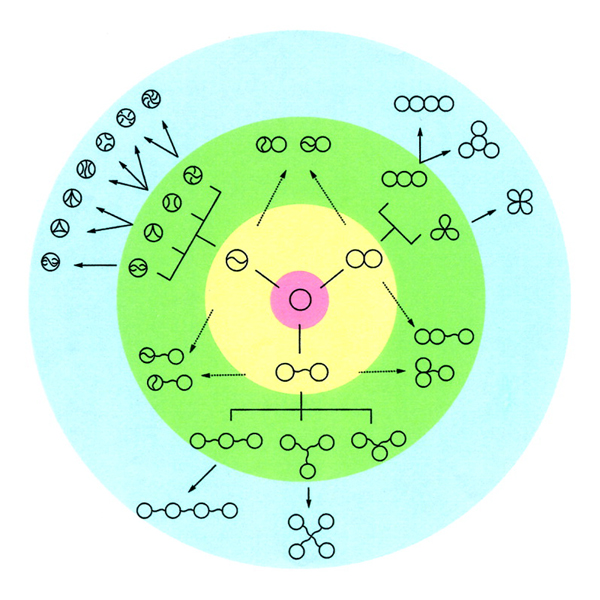In the macroscopic world, the form of objects often dictates their functions and properties. Sustained efforts have been made in synthetic polymer chemistry research to allow the production of macromolecules with various linear and branched topologies.
However, a class of single-cyclic (or ‘ring’) and multi-cyclic polymers has been an ongoing synthetic challenge.
Now, Yasuyuki Tezuka and colleagues at Tokyo Institute of Technology have developed a breakthrough synthesis process by taking advantage of an electrostatic self-assembly and covalent conversion principle using tailored polymer precursors (ESA-CF process).
A wide variety of topological polymers, including not only single cyclic but also precisely designed multicyclic architectures of either fused-, spiro-or bridged-topologies, has now become obtainable through the ESA-CF process in conjunction with advanced synthetic protocols [1].
The work has led to the emergence of a new field of research into topological polymer chemistry, which holds great promise not only for enabling new insights at the frontier of basic polymer chemistry and physics [2], but also for revealing unusual properties and functions that result from cyclic topologies and are unattainable in either linear or branched counterparts [3].
Reference
- 1)
-
- Naoto Sugai, Hiroyuki Heguri, Kengo Ohta, Qingyuan Meng, Takuya Yamamoto and Yasuyuki Tezuka
- Effective Click construction of bridged- and spiro-multicyclic polymer topologies with tailored cyclic prepolymers (kyklo-telechelics)
- Journal of the American Chemical Society 132, 14790 (2010).
- Digital Object Identifier (DOI): 10.1021/ja103402c
- 2)
-
- Satoshi Habuchi, Norio Satoh, Takuya Yamamoto, Yasuyuki Tezuka and Martin Vacha
- Multimode diffusion of ring polymer molecules revealed by a single-molecule study
- Angewandte Chemie, International Edition, 49, 1418 (2010).
- Digital Object Identifier (DOI): 10.1002/anie.200904394
- 3)
-
- Satoshi Honda, Takuya Yamamoto and Yasuyuki Tezuka
- Topology-directed control of thermal stability: micelles formed from linear and cyclized amphiphilic block copolymers
- Journal of the American Chemical Society 132, 10251 (2010).
- Digital Object Identifier (DOI): 10.1021/ja104691j
- Department of Organic and Polymeric Materials, Tokyo Institute of Technology
- Department website: http://www.op.titech.ac.jp/index_e.html


Ring families
. Any information published on this site will be valid in relation to Science Tokyo.



